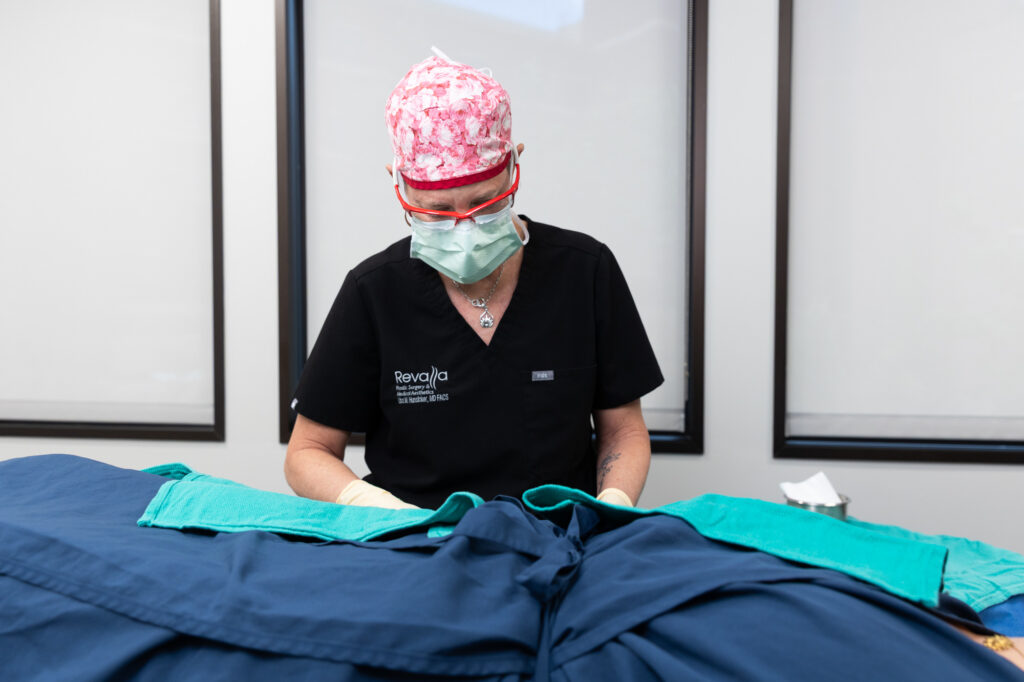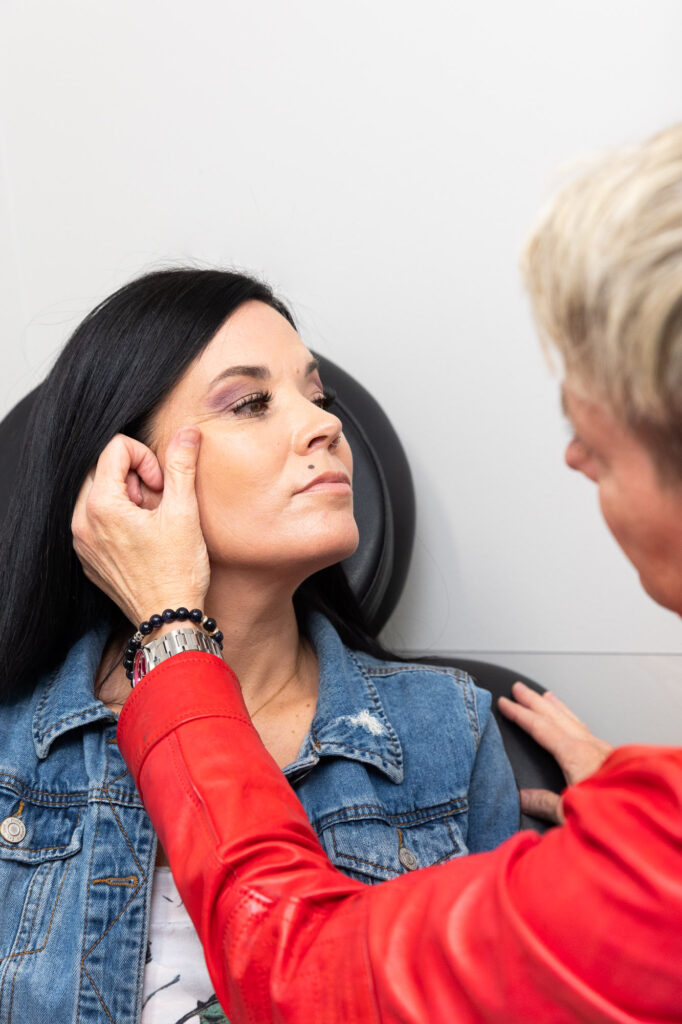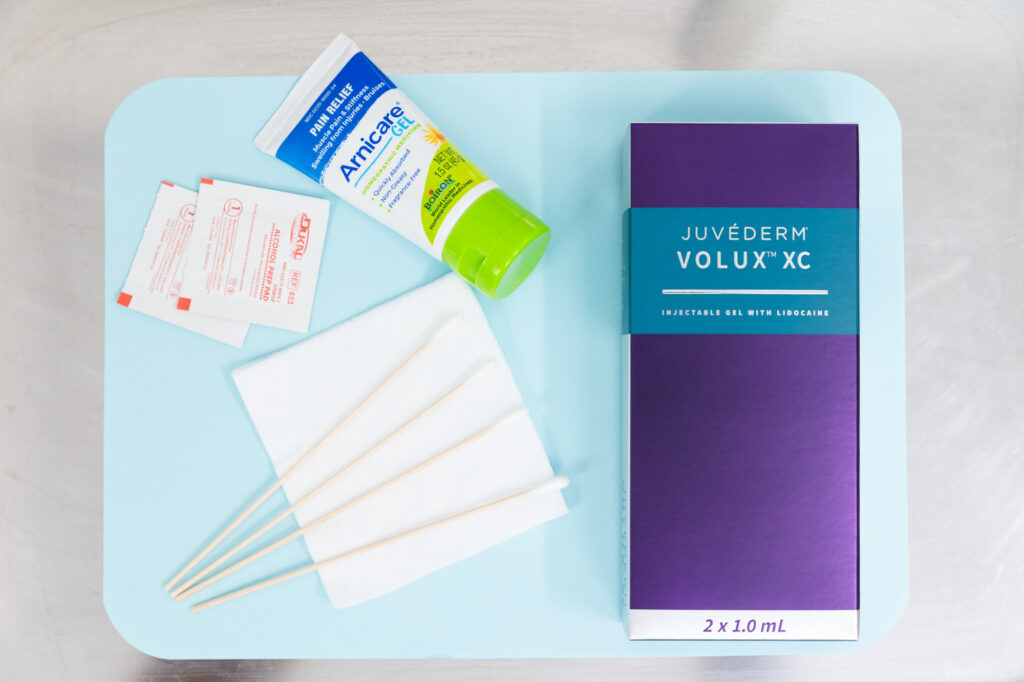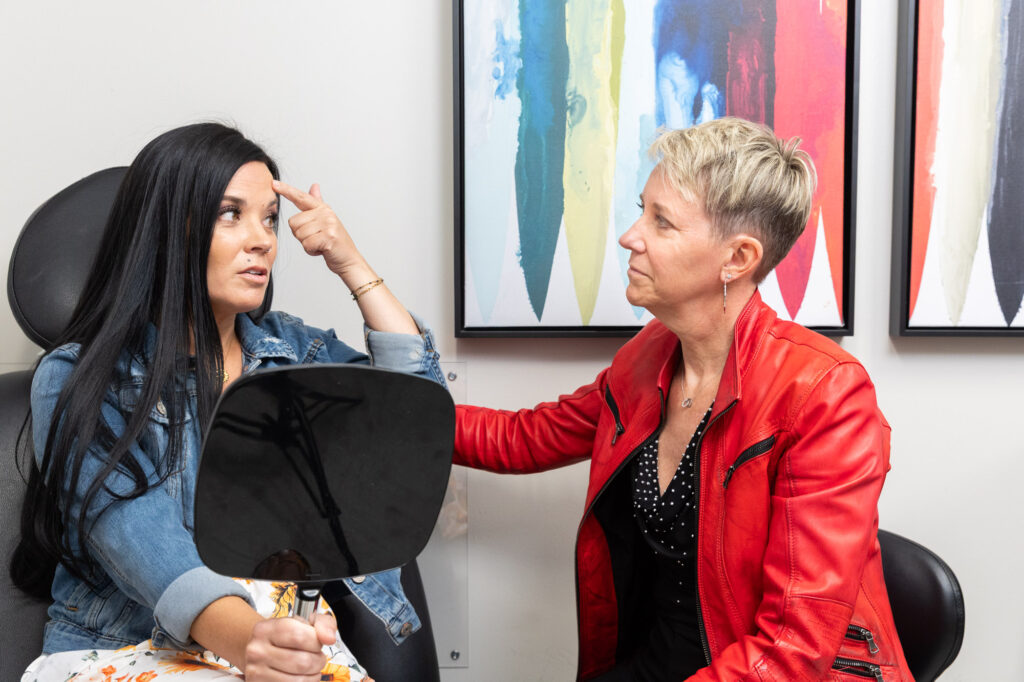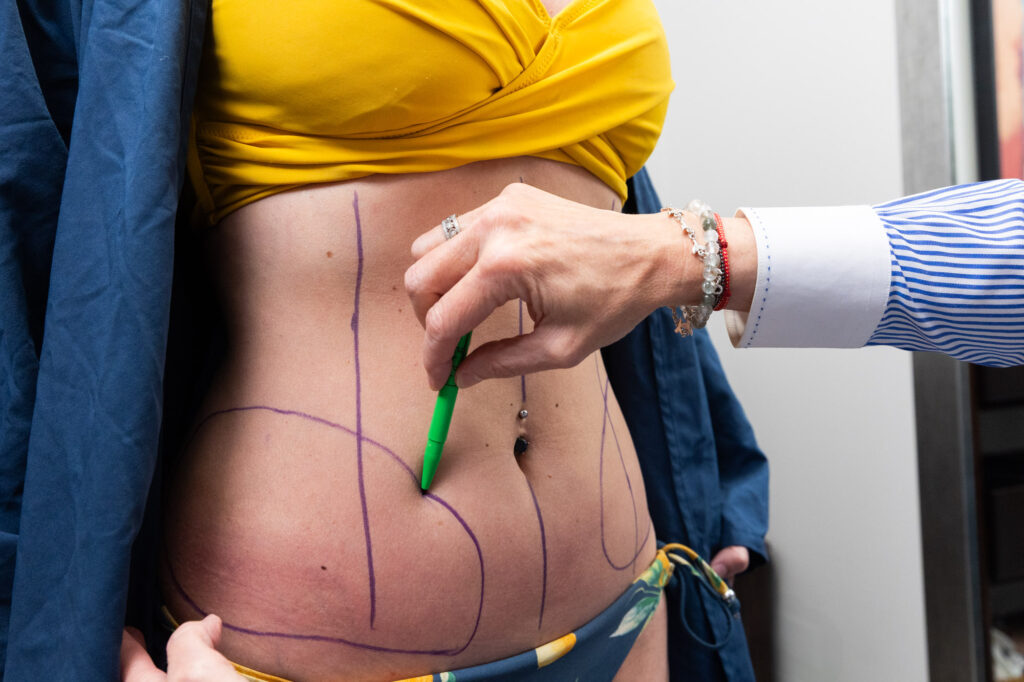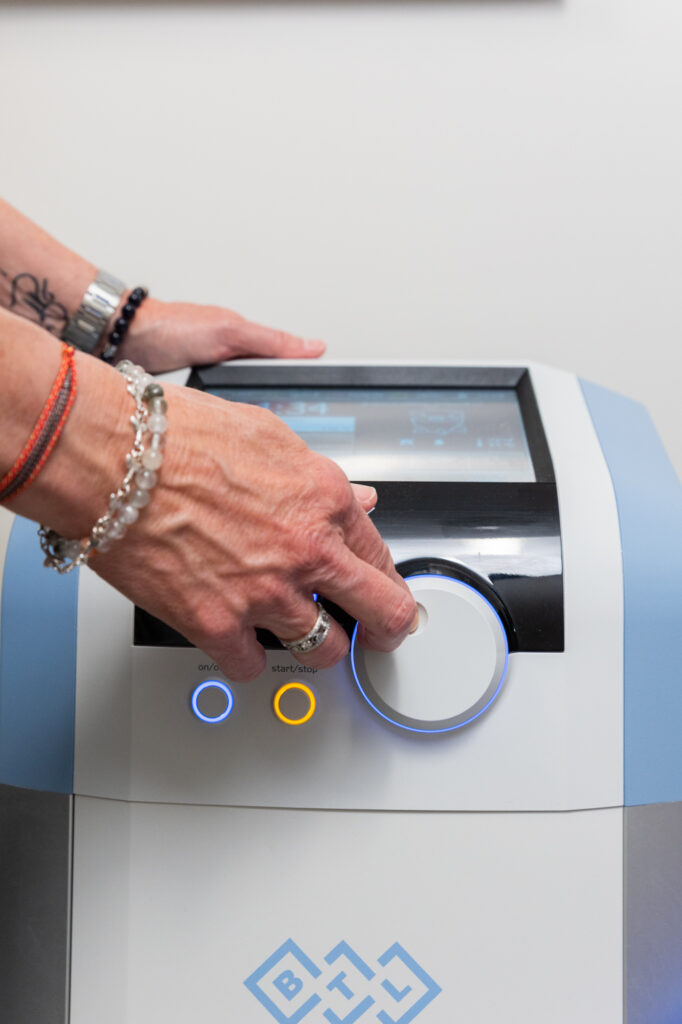Avoid herbal supplements, as well as aspirin, ibuprofen, and other NSAIDs that can cause blood thinning.
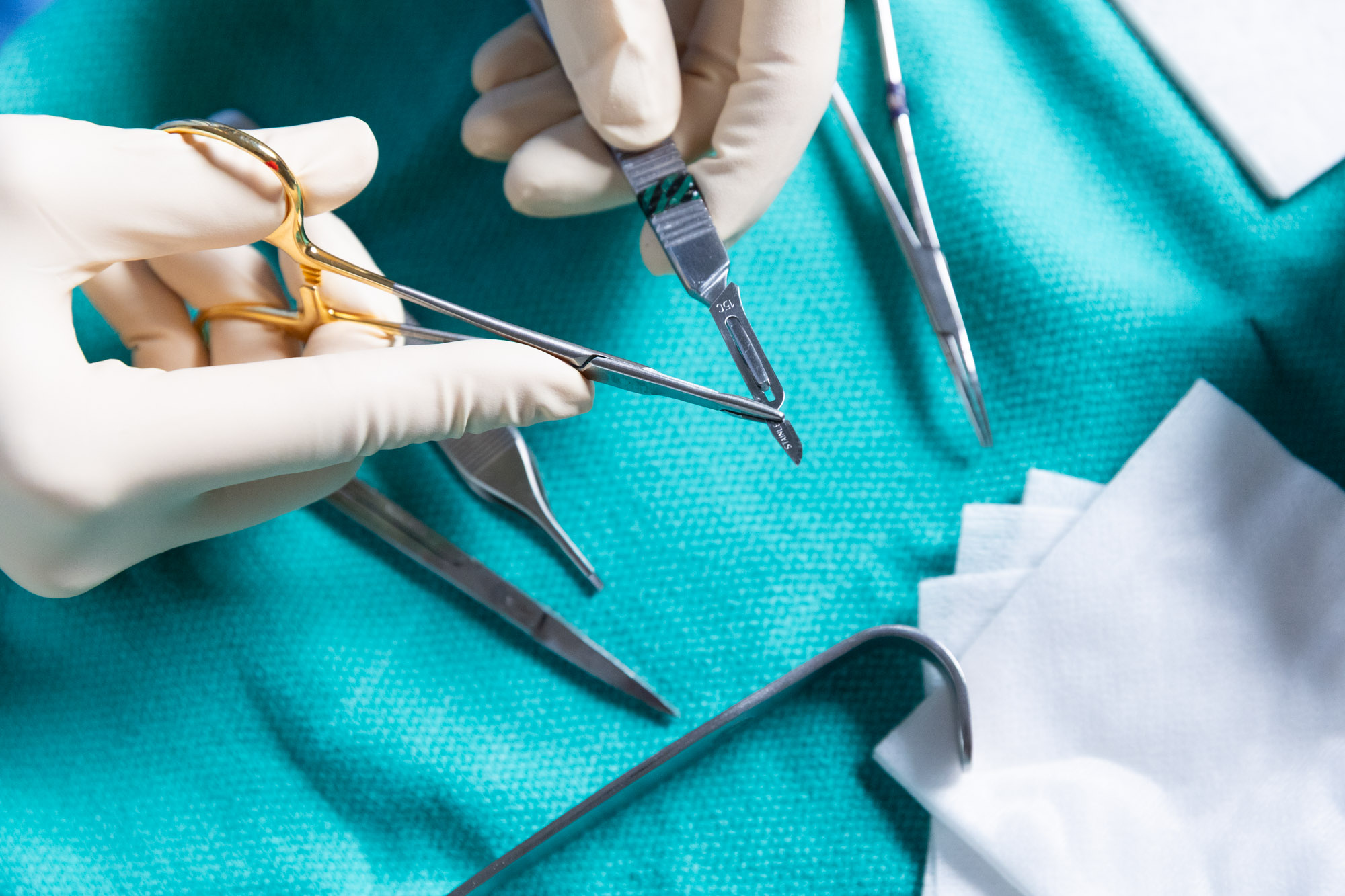
Labiaplasty in Littleton, CO
Intimate Care

-
Consultation Required?
Yes
-
Treatment Type
Surgical
-
Duration of Results
Potentially Permanent

Labiaplasty Overview
Consultation
Your journey to comfort begins with a 60-minute consultation with Dr. Hunsicker.
During this time, our surgeon will get to know you, review your medical history, and answer your questions. If we determine that labiaplasty in Littleton, CO is the next best step for you, we can move forward with scheduling your pre-op visit and surgery.
Pre-Op
Typically, we’ll see you for a preoperative visit 2 weeks before your surgery.
At this time, Dr. Hunsicker will conduct a final review of your medical history and plan for surgery. She will also answer any other questions you have. Before you leave, we’ll provide probiotics.
Surgery & Follow-Up
Please arrive at least 2 hours early for your surgery for a smooth check-in.
After your labiaplasty, we’ll prescribe you with medication and antibiotics to help you heal. We’ll schedule a next-day follow-up appointment for Dr. Hunsicker to check your progress.
Confidence Begins With Trust
Women from all over South Denver come to Revalla Plastic Surgery for labiaplasty in Littleton, CO. Dr. Hunsicker leads a team known for their precise skill, gentle care, and stunning results. Their attentiveness and dedication make each patient feel seen and heard. You can be confident about achieving your beauty goals with trusted surgeon at your side.



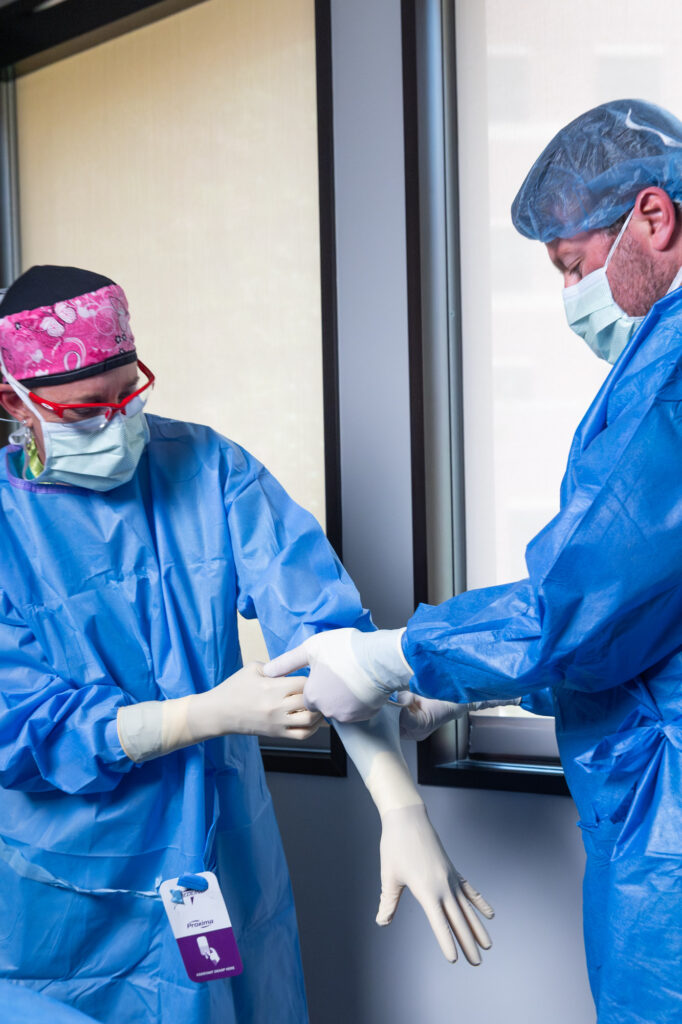

Pre-Care Instructions
Maintain a balanced diet of nutrient-rich foods and drink plenty of water. Do not eat or drink anything after midnight the night before your surgery.
Do not smoke or drink alcohol before your procedure. Take a shower the night before using gentle, fragrance-free soap.
Post-Care Instructions
Arrange for transportation to and from your appointment and your next-day follow-up. Contact Dr. Hunsicker immediately if you experience any discomfort, bleeding, nausea, or vomiting.
Avoid excessive walking, strenuous activity, and heavy lifting for 6 weeks. Continue to avoid taking NSAIDs and other blood-thinning medication.
Give your body time to rest and heal. Take a few days off from work. Take medication as directed and keep up with follow-up appointments.
A labial reduction, also known as labiaplasty, is becoming increasingly popular among women in the Denver area. Women dissatisfied with their large and/or asymmetric labia can now have labiaplasty in Littleton, CO, to reduce size and correct misshapenness or irregularities. We may perform labiaplasty for functional or cosmetic reasons, or a combination of the two.
Enlarged labia can cause discomfort in tight clothes or when engaging in sports or other physical activities. They can also cause pain during sexual intercourse and increase the risk of urinary tract or yeast infections. We frequently perform the procedure to reduce the size of one or both labia to resolve most medical issues.
Many women interested in correcting cosmetic and medical concerns related to elongated labia are good candidates for a reduction procedure. However, you should avoid certain habits and medications for a few weeks before and after the procedure so your body can prepare itself to heal.
For example, you should not smoke before any surgical procedure. Avoid blood-thinning medications and supplements. You must also be able and willing to follow post-surgical instructions to reduce the risk of complications.
The two standard techniques performed for labial reduction, trim, and wedge labiaplasty take about 1 hour to complete. Patients may remain at the office or surgical center for slightly longer to provide time for the local anesthetic and sedation to take effect and wear off. Arrange transportation to and from your appointment, as well as your next-day follow-up.

Create Your Custom Plan

Your care is in your hands! Select your concerns and tailor a plan just for you!


